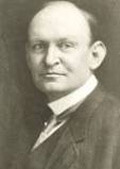the Second Week of Lent
Click here to join the effort!
Bible Commentaries
Imágenes de Palabra de Robertson en el Nuevo Testamento Imágenes de Palabra de Robertson
Nuevo Testamento
Jesus' life, teachings, and fulfillment of Old Testament prophecies as the Messiah. San Marcos
A fast-paced account of Jesus' ministry, focusing on his actions and sacrificial death. San Lucas
Jesus' life, emphasizing compassion for the marginalized and the universal scope of salvation. San Juan
Theological reflections on Jesus as the Word of God, focusing on his divine nature and mission. Hechos
The early church's growth, the apostles' ministry, and the spread of the Gospel. Romanos
A theological treatise on salvation, grace, faith, and righteousness through Jesus Christ for all. 1 Corintios
Paul addresses divisions, immorality, and spiritual gifts in the Corinthian church. 2 Corintios
Paul's defense of his apostleship, his sufferings, and the power of God's grace. Gálatas
Paul's defense of the Gospel of grace against legalism, emphasizing faith in Christ alone. Efesios
Paul's teachings on the church's unity, spiritual blessings in Christ, and Christian conduct. Filipenses
A letter of joy and encouragement, urging humility and faithfulness amid persecution. Colosenses
Paul's emphasis on Christ's supremacy and warnings against false teachings. 1 Tesalonicenses
Encouragement to a young church, with teachings on holiness and Christ's return. 2 Tesalonicenses
Clarifications about Christ's return and exhortations to stand firm in faith. 1 Timoteo
Guidance for church leadership, sound teaching, moral conduct, and defending the truth of the gospel. 2 Timoteo
Paul's final exhortations to Timothy, emphasizing perseverance and faithfulness. Tito
Instructions for establishing order in the church, promoting sound doctrine, and living with integrity. Filemón
A personal appeal for the forgiveness and restoration of a runaway slave, Onesimus. Hebreos
An insightful look at Christ's supremacy, priesthood, and the fulfillment of prophecies. Santiago
Practical wisdom on living out one's faith through good works and righteous behavior. 1 Pedro
Encouragement for suffering Christians to remain faithful and hopeful in their trials. 2 Pedro
A reminder to grow in faith, resist false teachings, and remain steadfast awaiting His return. 1 Juan
Teachings on love, obedience, and assurance of salvation through fellowship with God. 2 Juan
A letter encouraging love, obedience to God's commands, caution against teachings that deny Christ's truth. 3 Juan
A personal letter commending hospitality and warning against arrogance in church leadership. Judas
A strong warning against false teachers and a passionate call to defend the faith and uphold the truth. Apocalipsis
Apocalyptic visions of God's ultimate victory, Christ's return, and the new heaven and earth.
Author's Biography
Archibald Thomas Robertson, nacido el 6 de noviembre de 1863 en el condado de Pittsylvania, Virginia, fue una figura sobresaliente en el mundo de la erudición del Nuevo Testamento. Sus contribuciones han dejado una marca indeleble en los estudios teológicos, particularmente en el ámbito del griego bÃblico. La pasión de Robertson por el Nuevo Testamento no fue simplemente académica; fue alimentada por un profundo compromiso con su fe y un deseo de comprender las Escrituras de manera más profunda.
Educado en el Wake Forest College y el Seminario Teológico Bautista del Sur, donde luego se desempeñó como profesor, Robertson fue reconocido desde temprano por su mente brillante y su potencial académico. Su trayectoria académica lo llevó a estudios adicionales en Alemania, en la Universidad de BerlÃn y la Universidad de Halle, que enriquecieron sus perspectivas y metodologÃas en la investigación bÃblica.
El trabajo de Robertson sobre el Nuevo Testamento griego es monumental, siendo su "Gramática del Nuevo Testamento Griego a la Luz de la Investigación Histórica" una obra magna que ha permanecido como un recurso crÃtico para teólogos y estudiosos bÃblicos. Esta obra exhaustiva muestra su estudio exhaustivo del griego del Nuevo Testamento, enfatizando la importancia de comprender sus matices para captar la profundidad del texto bÃblico.
Además de su gramática, "Cuadros de Palabras en el Nuevo Testamento" de Robertson proporcionó comentarios perspicaces que hicieron accesibles los significados de palabras y frases griegas tanto para pastores como para lectores laicos. Su capacidad para elucidar conceptos complejos de manera comprensible ha ayudado a innumerables personas a interactuar con el Nuevo Testamento de manera más significativa.
El legado de Robertson no reside solo en sus logros académicos sino en su influencia perdurable en los estudios bÃblicos y su devoción inquebrantable por iluminar las verdades del Nuevo Testamento. Falleció el 24 de septiembre de 1934, pero sus obras continúan sirviendo como textos fundamentales, uniendo el mundo antiguo de las Escrituras con la comprensión y la fe contemporáneas.
